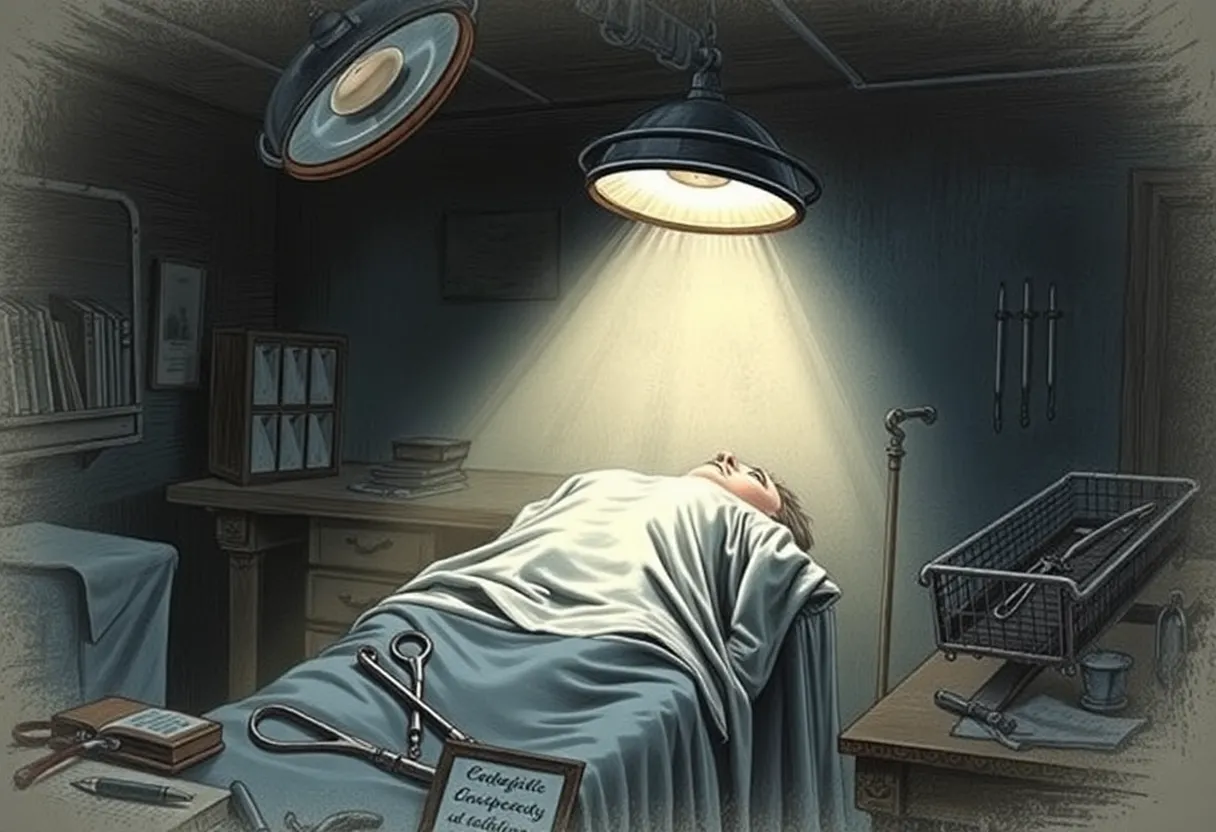News Summary
In a historic surgical event, Frances Burney underwent a mastectomy in London without anesthesia, highlighting the severe challenges in early 19th-century medicine. Her experience emphasizes the urgent need for effective pain management prior to the introduction of anesthesia, which transformed surgical practices. Burney’s account provides invaluable insight into the harsh realities of medical procedures at the time and underscores the advancements that followed, paving the way for safer surgical methods.
Timeline of Pioneering Surgery in London: Frances Burney’s 1811 Mastectomy
London, England — In 1811, the medical community witnessed a groundbreaking event in surgical history when Frances Burney, an influential novelist and playwright, underwent a mastectomy without the benefit of anesthesia. The procedure, carried out under extreme conditions, marked one of the earliest recorded instances of major surgery performed without pain relief, illustrating the formidable challenges faced by surgeons and patients before the advent of modern anesthetic agents.
Diagnosis and Medical Context
At age 59, Burney was diagnosed with breast cancer, which had grown sufficiently severe to threaten her life. The only viable treatment recommended was surgical removal of the affected breast—a procedure known as a mastectomy. However, at that time, anesthesia had not yet been developed; the first effective anesthesia using ether would not be introduced until 1846. This posed a daunting reality: patients undergoing surgery endured excruciating pain, and the surgical procedures themselves had to be conducted rapidly to minimize suffering.
The Surgery: A Harrowing Experience
On the day of her operation, Burney faced her procedure with apprehension. Historically, surgeons attempted to keep patients still and unaware of the intense pain through various means, but in this case, she was blindfolded and restrained by assistants to prevent movement. The actual surgery was performed with great speed and precision, often in mere seconds, to reduce pain and trauma. Despite these efforts, Burney reported experiencing searing pain during the incision, describing it as unbearable. At times, she lost consciousness twice during the operation, an indicator of her body’s response to the intense agony.
Outcome and Significance
Nevertheless, the surgery was successful, and Burney survived the ordeal, living for another 29 years. Her detailed personal account of the procedure offers valuable insight into the physical and emotional toll of early surgical practices. Her experience underscored the urgent need for effective pain management in surgery, a challenge that clinicians of the era continuously sought to address.
Historical and Medical Background
Before the advent of anesthesia, surgical procedures were limited predominantly to life-threatening emergencies, as the pain was often intolerable. Ancient civilizations, including the Persians and Incas, employed various pain relief methods—ranging from herbal remedies and opium to hypnosis and other psychological techniques—to ease suffering during procedures like trepanation, which involved drilling holes in the skull.
By the early 19th century, the speed of surgical techniques had improved, as surgeons like Robert Liston became renowned for their rapid amputations, sometimes performed in under 30 seconds. Despite their speed, these operations carried grave risks. Liston once performed a high-risk amputation with remarkable speed but inadvertently cut an assistant’s fingers, causing infections and fatalities—all without effective anesthesia.
The Turning Point: Introduction of Anesthesia
Historically, hypnosis or mesmerism was explored as a substitute for anesthesia but yielded inconsistent results. The true breakthrough came in 1846 when American dental surgeon William T. G. Morton successfully demonstrated the use of ether as a surgical anesthetic. This event marked a pivotal moment, transforming surgical practice by making procedures less traumatic and more accessible.
Modern Impact and Legacy
Burney’s painful but successful surgery highlights the arduous path medicine traversed before effective pain management was available. Her experience, along with subsequent innovations, contributed to the profound changes in surgical standards and patient care. The development and acceptance of anesthesia, together with advances in germ theory and antiseptic techniques later in the 19th century, revolutionized surgery—making procedures safer, more humane, and more widespread.
Today, Burney’s account remains a testament to the resilience of patients and the relentless pursuit of medical progress that has made pain-free surgery a reality for millions around the world.
Deeper Dive: News & Info About This Topic
HERE Resources
Additional Resources
- Baptist Press: Scopes Trial – A Defining Moment in U.S. History
- Wikipedia: Medical History
- KTVU: Video Report
- Google Search: Medical Advancements
- Billy Penn: Young People’s Continental Congress Philly 2025
- Google Scholar: Anesthesia History
- Vox: Disney’s America – A U.S. History Theme Park that Failed
- Encyclopedia Britannica: Anesthesia
- Washington Post: Largest U.S. Health Care Fraud Bust
- Google News: History of Surgery
Author: STAFF HERE VIRGINIA BEACH WRITER
The VIRGINIA BEACH STAFF WRITER represents the seasoned team at HEREVirginiaBeach.com, your trusted source for actionable local news and information in Virginia Beach, Virginia Beach City, and beyond, delivering "news you can use" with comprehensive coverage of product reviews for personal and business needs, local business directories, politics, real estate trends, neighborhood insights, and state news impacting the region—supported by years of expert reporting and strong community input, including local press releases and business updates, while offering top reporting on high-profile events like the Virginia Beach Neptune Festival, East Coast Surfing Championship, and military homecoming celebrations, alongside key organizations such as the Virginia Aquarium, Virginia Beach Convention Center, and Oceana Naval Air Station, plus leading businesses in tourism and defense like Busch Gardens and Northrop Grumman, and as part of the broader HERE network including HEREWilliamsburg.com, providing credible, in-depth insights into Virginia's vibrant landscape. HERE Virginia Beach HERE Williamsburg





